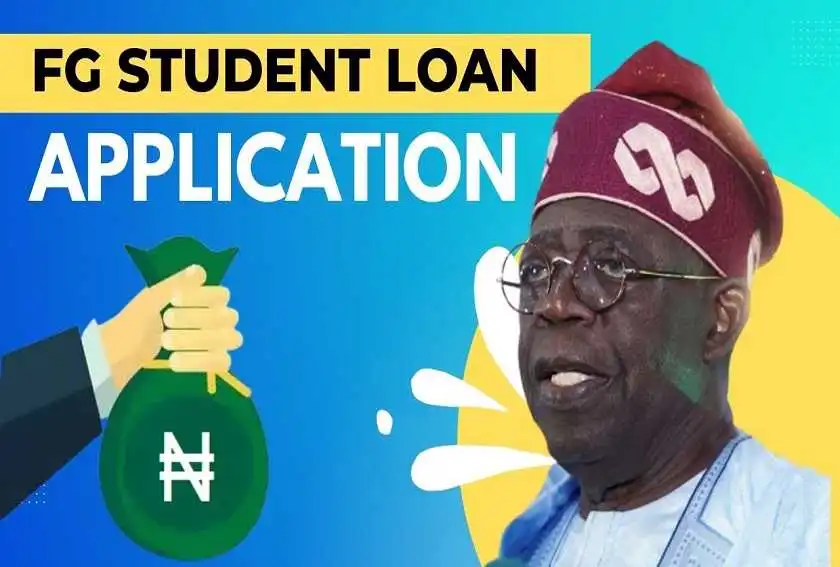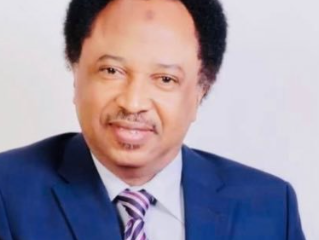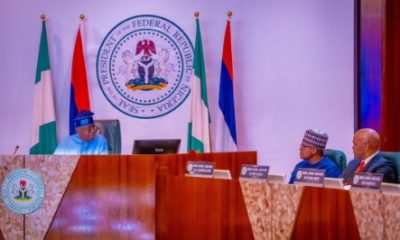Comments and Issues
President Tinubu’s students’ loan policy
Published
3 years agoon

In partial response to the perennial crises of inadequate funding and ASUU strikes in federal universities, President Bola Ahmed Tinubu has signed the Students’ Loan Bill into law. Under this law, indigent Nigerian students will get interest-free loans to see them through their stay in government-owned higher institutions. Beneficiaries are expected to repay the borrowed sum once they start working, that is, two years after the mandatory national service. Potential beneficiaries will be expected to apply to the Chairman of the Bank through the Chief Executives of their respective institutions having a secured a place in the school. The law states that any student whose parents earn more than 500k per annum will not qualify for the loan. Certainly, this aspect of the law would need to be reviewed.
As is usual with such loan facility, beneficiaries will be expected to provide two guarantors with the requisite qualifications – a civil servant on level 12 and above or a clergy man! Also, a student whose parents had defaulted in loan repayments will not be eligible for the interest-free loan. Furthermore, students who had been convicted of a felony of any offence involving dishonesty or fraud, or who had been convicted of drug offences are ineligible for the loan. Repayment of the loan, as stated earlier, is designed to commence two years after completing the National Youth Service Corps. What is not clear to me is what will happen if after completing a first degree the beneficiary migrates from Nigeria to seek for greener pasture! But that is for the government to worry about!
No doubt, this is a welcome development. And the President should be commended for hitting the ground running because some background work was done even before he was elected to office. Some of the President’s actions suggest he came prepared for the job after many years of waiting. The model of funding tertiary education which we currently operate has failed woefully. We can see this with half an eye! It does not need a patch work. It needs a total overhaul. There is no where in the world where education is free. Somebody pays for it. If the federal government has decided to give loans to students to enable them to pay for tuition, no sensible person, union, or group should join issues with the government. What we should be bothered about are the conditions and how the process should net be hijacked by a cabal in the traditional Nigerian style.
ALSO READ: Key highlights to know about the new student loan law
Should there be a bank created for this purpose or we should adopt three to five big banks to warehouse and administer the funds on the condition that they donate a percentage to the funds? What will be the implications of creating a fresh bureaucracy to manage students’ loans? What guarantee is there that the students would repay the loans? What happens if a beneficiary is unemployed two or three years after graduation? In case of default, like if a beneficiary relocates abroad, what will the state do? Will beneficiaries be expected to deposit their certificates with the operators before NYSC? These are questions in the mouths of observers and compatriots. My response is that the government must have ready answers because they operate within the Nigerian geographical space and are familiar with our shenanigans.
The university system needs to be properly overhauled – from teaching methods to curriculum and learning outcomes. The wages of university professors must be reviewed immediately. An Assistant Lecturer, the entry point not academia, goes home with one hundred and ten thousand naira monthly. This salary has been so fixed since 2009. Students live in squalor, a far cry from the relative comfort of the university environment of the 1980s. If the universities charge the appropriate fees added to some grants from the government, academic staff should earn more. Laboratories will have more equipment. The libraries will have more books and journals. The students are more likely to take education seriously. Students will be more comfortable on the campuses. Besides, students will be more interested in their studies because they will be paying for their education.
President Tinubu is preparing the nation therefore for a new approach to education policy formulation and implementation. Our dear ASUU has been virtually emasculated by the courts after the last battle over payment of salaries after a protracted strike. The federal government used the court to deal a blow on the union and killed morale. Even within the university system, there are doubts whether ASUU still has the strategy to lead academics to the Promised Land. This is why the union must reinvent itself and restore confidence in the followership. In my view, ASUU’s objection to a Students Loan Board amounts to being a busybody! Interestingly, NANS officials paid a solidarity visit to the President to thank him for the initiative and requested that ASUU should be removed from the Board! Are these the students ASUU is fighting for? Let the welfare of academics be the primary and only focus of university unions. ASUU, kindly return to the drawing board while listening to your members!
President Tinubu should adopt other measures to reinvent tertiary education. For starters, he should direct that the gentleman’s agreement which then Speaker House of Representatives reached with ASUU be respected and implemented. Academics have been on the same salary provisions since 2009, and indeed, the take home pay of academics cannot take them home! The withheld salaries of ASUU members should be paid to show good faith. The funds which accrue from TETFUND should be given to universities as grants without apron strings from Abuja to meet their needs. That way, he would win over most academics to his side. Furthermore, the universities need full autonomy in managing its affairs. In my view, there should be no central body dictating academic programmes to the universities, thereby usurping senate functions.
The government must remember that school/tuition fees alone will not be sufficient to meet the obligations of the universities. In other words, government must not hand off funding education through grants and other forms of interventions. Education is too important a service to be commercialized.
Article was written by Hope O’Rukevbe Eghagha
You may like


The President’s Oration


The poor should not bear the burden of sacrifice – Shehu Sani, others tell Tinubu


Economic Stabilization Bill: Necessary Stimulus for Nigerian Economy


Oct. 1: Police guard protests in Lagos


President Tinubu mourns 40 Maulud participants killed in tragic auto crash


Tinubu meets with King Charles lll at Buckingham Palace
Trending

 Entertainment5 days ago
Entertainment5 days agoSimi addresses resurfaced 2012 tweets amid online backlash

 Comments and Issues1 week ago
Comments and Issues1 week agoNigeria’s Declining Oil Output and Soaring Foreign Portfolio Investment Inflow

 Comments and Issues1 week ago
Comments and Issues1 week agoEx-prince Andrew’s arrest, lessons for Nigeria

 Health7 days ago
Health7 days agoSCFN, LUTH introduce bone marrow transplants as curative treatment for sickle cell

 Comments and Issues1 week ago
Comments and Issues1 week agoThe Seyi Tinubu’s jellof rice, loaves of bread

 Health3 days ago
Health3 days agoDeclassified CIA memo explored concealing mind-control drugs in vaccines

 Football7 days ago
Football7 days agoHarry Kane nets brace as Bayern edge Frankfurt 3–2 to go nine points clear

 Football7 days ago
Football7 days agoLate Flemming header stuns Chelsea as Burnley snatch 1–1 draw at Stamford Bridge

